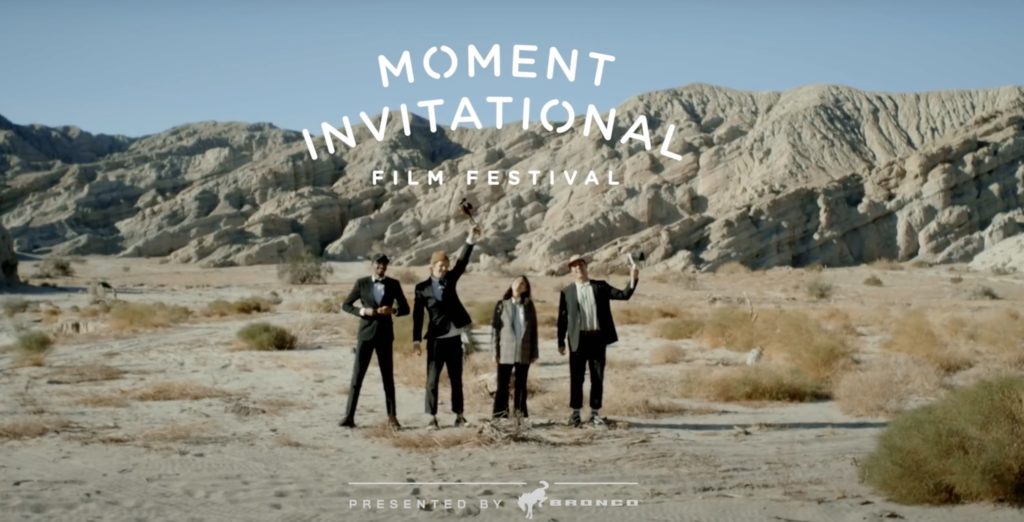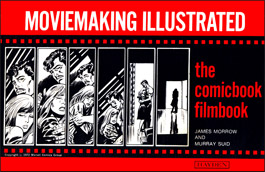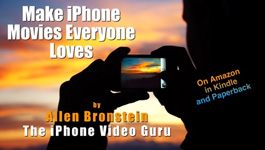“Missed Call” documents a boy’s quest to reconnect with a father he hadn’t seen for many years. The film’s visual imagery, story structure, and editing are stunning. But what you’re most likely to remember is the documentary’s searing honesty. The director Victoria Mapplebeck not only captures her son as he deals with difficult emotions. She also courageously films herself in a moment of profound grief. Mapplebeck is noted for her work as an interactive filmmaker. Recently, she cofounded the UK-based Smart Film Festival. In an interview (below), she takes us behind the scenes of “Missed Call,” which is the winner of Best Short Form Programme at the BAFTA Television Awards 2019.
Interview with Victoria Mapplebeck
Mobilemoviemaking: What made you want to become a filmmaker?
Mapplebeck: I was listening to an interview recently with a women astronaut who mentioned the “overview effect” and it really struck a chord with me. It’s a term used to describe the cognitive shift in awareness astronauts experience when they look back at Earth from orbit. I would love to experience that shift in perspective, how life affirming to look back at the earth and feel that all the pain, conflicts and tragedies that consume us throughout our lives are in the grand scheme of things just a small part of a much bigger picture. For me looking at life through a lens is the nearest I’ll get to the “overview effect.” It’s like looking back at earth through the window of my own personal space ship!
Mobilemoviemaking: How did you develop your filmmaking skills?
Mapplebeck: The first film degree I began in the mid 80s was a disaster. It was a Film and TV programme run by ex-BBC Producers. We were taught that there was a list of formulas when it came to making films which we must stick to! My male peers were encouraged to become directors and cameramen and myself and my fellow female students were encouraged to be production managers and when shooting in the TV studio, to vision mix, which I think they thought was a bit like typing!
MobileMovieMaking: That’s funny…and sad.
Mapplebeck: I abandoned ship and transferred to a Fine Art course with film and photography. I had an amazing three years of being told there are no rules, no formulas and that each of us should find our own voice as a filmmaker. I loved it. It’s where I learnt to take risks and to experiment. This skillse has given me better creative rewards than financial ones.
MobileMovieMaking: You perfectly describe the situation many artists experience.
Mapplebeck: At 38, after a decade of earning a living making documentaries for British TV, I found myself single, pregnant and broke. I had to give up my own career as a documentary director overnight, realising that the long hours and insecurity of a freelancer did not go hand in hand with being a lone parent. I went into academia and taught filmmaking to undergrad and postgrad students. It was another decade before I would get back to making my own films again, but being around so many other directors meant that I kept learning about the art of filmmaking. You don’t have to be shooting your own material to learn about film practice, you can learn just as much from the filmmakers around you. Of course, I’ve also learnt so much about filmmaking on every film I’ve ever made. I hope to be like Agnes Varda and be still making films into my 90s and still learning from the failures and success encountered on each one of them. When I was younger, I was really crushed by failure. I felt it was something to be ashamed of. Now I’m out and proud about the obstacles I’ve hit over the years and the mistakes I’ve made. I also discuss my many mistakes when teaching, so that my students are able to learn that failure is a key part of the risk taking you need to embrace to become a great filmmaker
MobileMovieMaking: What led you to making “Missed Call”?
Mapplebeck: “Missed Call “is a sequel to “160 Characters,” my first smartphone short, which was made for Film London. “160 Characters” brought to life a three-year SMS thread between myself and my son’s father which charted the story of how we met, dated for just a few months, broke up and subsequently dealt with an unplanned pregnancy. My son’s dad came to see my son a handful of times when he was a baby before deciding that he didn’t want to be involved. “160 Characters” documents this experience from my point of view, but “Missed Call” explores the experience of growing up without a father from my son’s POV.
MobileMovieMaking: How did your son feel about the project?
Mapplebeck: When he was 13, he decided he wanted to meet his father and asked if I would make contact with him. How do you reconnect with a father who’s been absent for over a decade? what do you write, what do you say? Add to that dilemma a teenage boy and the realisation that this private journey would very quickly become a public one. There were a lot of sleepless nights. Squaring the circle of being both filmmaker and parent made this one of the most challenging films I’ve ever made.
MobileMovieMaking: How did you plan the production?
Mapplebeck: “Missed Call” is a mix of archive, animation and conversations with my son Jim, recorded both on my smartphone and the zoom recorder. The conversations between myself and Jim formed the main story arc of the film. All the conversations with Jim were transcribed and we built assemblies from those marked up transcripts. We cut in Premiere, and my editor Lisa Forrest was very accomplished in how she organised a really extensive archive. All the family archive I’d shot on smartphones ( post 2012) was backed up to the cloud and sometimes, I would use that archive to find additional material. My workflow is much more fluid than it was in my early days of shooting documentaries in the 90s, when there was a more defined shoot and edit period. With the smartphone, I’m shooting additional sequences right the way through the edit period. I have material that that was included in the fine cut of one of my smartphone shorts, which was shot just two days before the final online.
MobileMovieMaking: Could you talk about the onscreen text messages between you and Jim’s dad?
Mapplebeck: They were a key part of “Missed Call.” My editor and I decided that we wanted the texting to feel like it was playing out in real time. In After Effects we used a transparent text bubble and mixed the audio sound fx of the texting with the sync sound of the live action sequences. The viewer sees my texts being typed in real time, drafted and redrafted while I attempt to compose a message to Jim’s father. I used this device to capture the interface between emotion and technology, the challenges of translating complex emotional dialogues into a one line text message
MobileMovieMaking: Why did you decide to shoot using a mobile rather than a traditional camera?
Mapplebeck: In terms of intimacy and access, the smartphone is hard to beat. For Jim, the filming set up was spontaneous and minimal. When he looked into the lens all he saw was me. I’ve been a self-shooting director for 25 years. The camera I shoot with has gone from needing a bag the size of a small suitcase to one that fits in my pocket. The smartphone has transformed how we record, collect and share the world we live in, both inside and outside of the home. Over the last six years of shooting with a smartphone, I’ve been able to shoot on buses, on trains and in hospitals. This meant I was able to follow Werner Herzog’s advice to documentary filmmakers: “Ask for forgiveness, not permission”.
MobileMovieMaking: What gear did you use that you found especially helpful?
Mapplebeck: Filmic Pro is a great app, in that you can separate exposure and focus and also has various special effects . If I’m ever shooting interview material or location material that needs to be slow and smooth, I will use a stabiliser. I use the DJI Osmo Mobile 3 – Foldable Mobile Gimbal which works well with my iPhone X. A low budget alternative is to get a full 500ml bottle of water and with two elastic bands and fix your phone to the water bottle! It gives your smartphone more weight and is therefore steadier. I also use a Joby JB01507-BWW GorillaPod which is much more flexible and versatile than traditional tripods
MobileMovieMaking: What about sound?
Mapplebeck: For any sync dialogue, external mics are a must. I’ve used all of the following: RODE Wireless GO – Compact Wireless Microphone System, RØDE VideoMic Me-L Directional Microphone, and Rode Smartlav Lavalier Microphone.
MobileMovieMaking: During the production of the documentary, did you encounter any unexpected problems?
Mapplebeck: The biggest challenge we had with “Missed Call” was that our own lives were the unfolding narrative. I felt I could handle my own personal life being made public but my son Jim was only 13 when we began filming. I had an amazing executive producer, Amanda Murphy. Amanda had a daughter about the same age as Jim and was very skilled at helping me to square the circle of being both filmmaker and parent. Amanda patiently took regular and lengthy calls in which we could both talk through the ethical dilemmas we faced. There were various techniques we put in place to protect Jim and give him some privacy for the most difficult parts of his journey. When I discovered that Jim’s dad had another family, I didn’t tell Jim that news live on camera. We would discuss it in private and then a few days later we’d talk about it on camera if he was up for that.
MobileMovieMaking: What a thoughtful way to handle a challenging situation.
Mapplebeck: Jim also had rough cut approval. Myself and my brilliant editor Lisa Forest would show Jim various assemblies and any footage he didn’t like or approve of wouldn’t make the fine cut. Also, the commissioner of “Missed Call,” Adam Gee, didn’t ever push us into decisions that felt uncomfortable, he was always very mindful of protecting Jim and making sure he was happy with the final film. You need a great team behind you on any film but when the unfolding narrative is your own life, you really need a ‘dream team’ who have your back!
MobileMovieMaking: Could you talk about your film’s reception?
Mapplebeck: “Missed Call” launched in 2018 on the Real Stories you tube channel. It’s the first BAFTA (British Academy of Film and Television Arts) that YouTube has ever received. When it launched, I was really nervous about the audience comments but they’ve been so positive Jim and I often sit down to read them together. There’re over 400 comments, and the vast majority are incredibly positive. People respond very well to Jim and often share their own experiences, (both good and bad) about growing up with an absent parent. Sometimes people would recount their own stories of reconnecting with long term absent parents in adulthood and Jim was always interested to hear about those moments and how people went forward. For Jim, these stories gave him a real sense that families now come in all shapes and sizes .
MobileMovieMaking: Looking back, is there anything you’d do differently?
Mapplebeck: No….but that’s probably because I’ve learnt to embrace my mistakes!
MobileMovieMaking: What advice would you give to someone who wants to make documentary movies?
Mapplebeck: Don’t disappear down the rabbit hole of raising finance. You can lose months and years to that journey. No budget is no excuse so just start shooting!
MobileMovieMaking: Thanks for sharing your story and providing us with such helpful information.
# # #
You can find more about Victoria Mapplebeck, on her website, on Twitter, on Facebook. and in an article in The Guardian. She also recently cofounded SMart : The London International Smartphone Film Festival with Adam Gee, who commissioned “Missed Call.” SMart celebrates the innovation, intimacy and diversity of Smartphone filmmaking. The aim is to celebrate the creativity and diversity of smartphone films, long and short, support a film community centred on the best in smartphone filmmaking, and share know-how and expertise in smartphone film production.
# # #
The editors of MobileMovieMaking have chosen “Missed Call” as the Mobile Movie of the Week.



 Previous post
Previous post
 Next post
Next post





